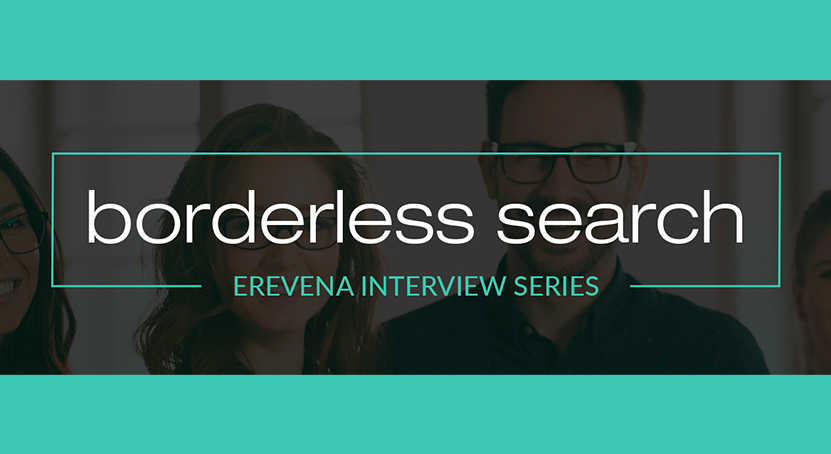In 2017 Mark Tsimelzon, moved to the UK from California to join Babylon Health as Chief Engineering Officer in a search led by Erevena. In May 2019, after scaling their engineering organisation to over 300, he moved to Facebook to help with WhatsApp London’s team build out. He talks to Erevena about his experiences.
What prompted you to consider a move abroad?
Joining Babylon in London was a great opportunity. It fitted perfectly with what I wanted to do – transforming healthcare with AI. We’d been living in Silicon Valley for 20 years and were looking to move somewhere new. We’d considered moving closer to San Francisco or even New York but Babylon was so close to my professional interests and London is such a great city. It just felt right.
How did you make your final decision to take the leap?
I have the rule that the right decisions are easy to make. Speaking to friends who had made the same move was very helpful and I’d recommend that. My wife and I sometimes joke that our move was something of a mid-life crisis. Silicon Valley was becoming a bit predictable but now, life is packed with new discoveries.
What were the biggest surprises in the lead up to relocating?
There’s a lot to do, but luckily no big surprises. You forget how much you accumulate over the years. That was the hardest thing – just the effort of sorting it all out. Other than that, there was nothing major, although a lack of clarity on visas was a challenge. The lesson here would be to get the visa sorted – so many actions require this confirmed before getting going.
Were there any parts of ‘landing in the UK’ that were difficult?
• Banking
It’s a Catch 22 of needing an address first, but you need a bank account to get an address. Get your employer to write you a letter confirming your employment status.
• Education
This was the most stressful part of the move. The education system in the UK is very different from the US. We had an educational service bundled in, but it proved worthless. Find a local specialist educational consultant who can explain the different kinds of schools that exist, and tell you which ones would be best specifically for your children.
• Renting
Be careful if you rent from private landlords when it comes to the security deposit. In my experience, in the US a security deposit is only used to cover something that really gets broken. In the UK, a private landlord will take money for what I’d call ‘wear and tear’ but they see it as ‘ruined’. This seems to be much more common here than in the States. If there’s a spot on the wall, they want to redecorate the entire room.
Other than that, once we decided where we wanted to live there wasn’t much else. I was surprised at how similar things were in the UK.
What are the cultural differences you’ve noticed between US and UK engineering teams?
It’s 90% the same. The teams are very international in both cases, but more so in Europe than the US, which was a huge surprise to me.
One difference that’s relevant to building teams is the idea of notice periods. In the US you don’t have them. If you want to hire somebody, in two weeks they’ve joined you, or three weeks at the most. Here you generally have to wait for three months, even for junior people. That has a huge impact on your ability to scale at similar pace to the US.
What nuances are there in terms of leadership and the language you use?
There are small things around the language. For example, in the UK people use the word ‘brilliant’ differently. It does not mean anything. It’s the same as ‘great’ in the US. So the first ten times you hear ‘brilliant’, you think, “wow, they really like my ideas”. Then you get used to it.
Then there’s the fact that some people aren’t as direct as I’m used to. People hint at what they want you to do rather than be explicit. That’s ‘being English’. And just because people are reserved with you, it doesn’t mean they hate you – it’s simply the way they are. Largely, however, the world has globalised so much that the UK and US are remarkably similar.
You’ve worked with engineers in both the UK and the US – is there a difference in quality?
There are amazing engineers in both places. The difference is more about quantity. There are fewer engineers in London, but the competition for them is smaller.
Also, finding very senior engineers, engineering leaders, and especially product managers is a bit harder here. But you can certainly find them.
Are there experiences that will give you an edge when you return to the US?
All overseas experiences are useful. There are people in Silicon Valley who don’t believe that there is any life outside the Valley, or at best northern California. But this hurts them because they don’t see opportunities, such as how they could hire someone from abroad, or open an office somewhere else. I was a little similar in terms of the idea of opening an office in a different country. I knew people did it, but it was foreign to me. Now I definitely feel better about these things. So yes, my overseas experience will prove a premium for me in future.
If you’re embarking on a new career in the UK, pick up a copy of a book called ‘Watching the English’ by Kate Fox. It explains things well and with humour.
What are the ups and downs for your family?
Socially, I think a move like this is harder on the children: they are not in control. My wife and I made the decision to come here, not them, although we did talk to them about it. And they’re OK. They talk to their friends in the US on WhatsApp and Skype, and my daughter has made a ton of friends here. But I would also advise others to think hard about the impact and talk to people who’ve made a similar move.
The upside of moving, is that you all get to live in a very different city; in our case one of the largest in the world, with all the cultural experiences that come with that. You can fly for two hours and cover most of Europe. Even better, you have 25 days’ holiday to do that, which is generally much more than in Silicon Valley!
Share this article:











